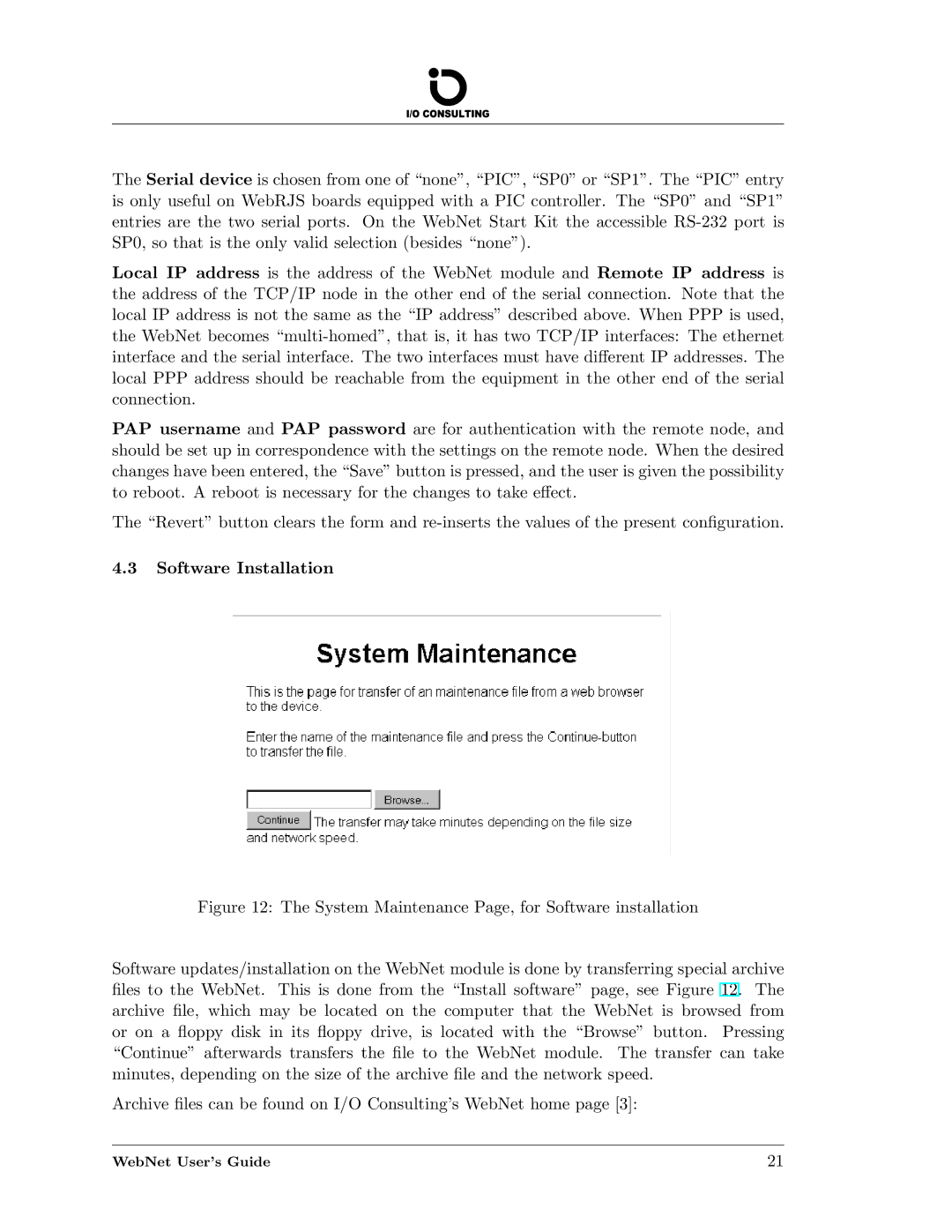
The Serial device is chosen from one of “none”, “PIC”, “SP0” or “SP1”. The “PIC” entry is only useful on WebRJS boards equipped with a PIC controller. The “SP0” and “SP1” entries are the two serial ports. On the WebNet Start Kit the accessible
Local IP address is the address of the WebNet module and Remote IP address is the address of the TCP/IP node in the other end of the serial connection. Note that the local IP address is not the same as the “IP address” described above. When PPP is used, the WebNet becomes
PAP username and PAP password are for authentication with the remote node, and should be set up in correspondence with the settings on the remote node. When the desired changes have been entered, the “Save” button is pressed, and the user is given the possibility to reboot. A reboot is necessary for the changes to take effect.
The “Revert” button clears the form and
4.3Software Installation
Figure 12: The System Maintenance Page, for Software installation
Software updates/installation on the WebNet module is done by transferring special archive files to the WebNet. This is done from the “Install software” page, see Figure 12. The archive file, which may be located on the computer that the WebNet is browsed from or on a floppy disk in its floppy drive, is located with the “Browse” button. Pressing “Continue” afterwards transfers the file to the WebNet module. The transfer can take minutes, depending on the size of the archive file and the network speed.
Archive files can be found on I/O Consulting’s WebNet home page [3]:
WebNet User’s Guide | 21 |
